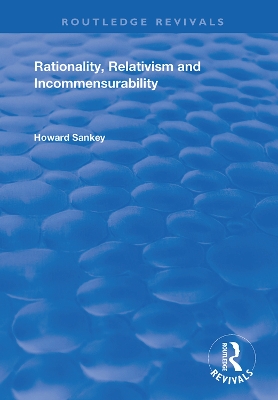Routledge Revivals
2 total works
Originally published in 1994, The Incommensurability Thesis is a critical study of the Incommensurability Thesis of Thomas Kuhn and Paul Feyerabend. The book examines the theory that different scientific theories may be incommensurable because of conceptual variance. The book presents a critique of the thesis and examines and discusses the arguments for the theory, acknowledging and debating the opposing views of other theorists. The book provides a comprehensive and detailed discussion of the incommensurability thesis.
First published in 1997, this volume brings together a series of essays on the philosophy of science and responds to the "crisis of rationality" which evolved from the denial of both a stable methodology and a common language for science. Howard Sankey holds that important insights about scientific methodology and rationality may be gleaned from the historical approach, from which the existence of profound conceptual change in science, as well as the absence of a neutral observation language, are important findings. Half of Sankey’s essays concentrate specifically on the thesis that alternative scientific theories are incommensurable due to semantic differences between the vocabulary in which they are expressed. Several others seek to derive a new way of thinking about scientific rationality from the historical critique of the idea of a fixed scientific method. Still others demonstrate how some seemingly relativistic themes of the historical approach may be embraced in a non-relativistic manner within the context of a pluralistic and naturalistic theory of scientific methodology and rationality.

